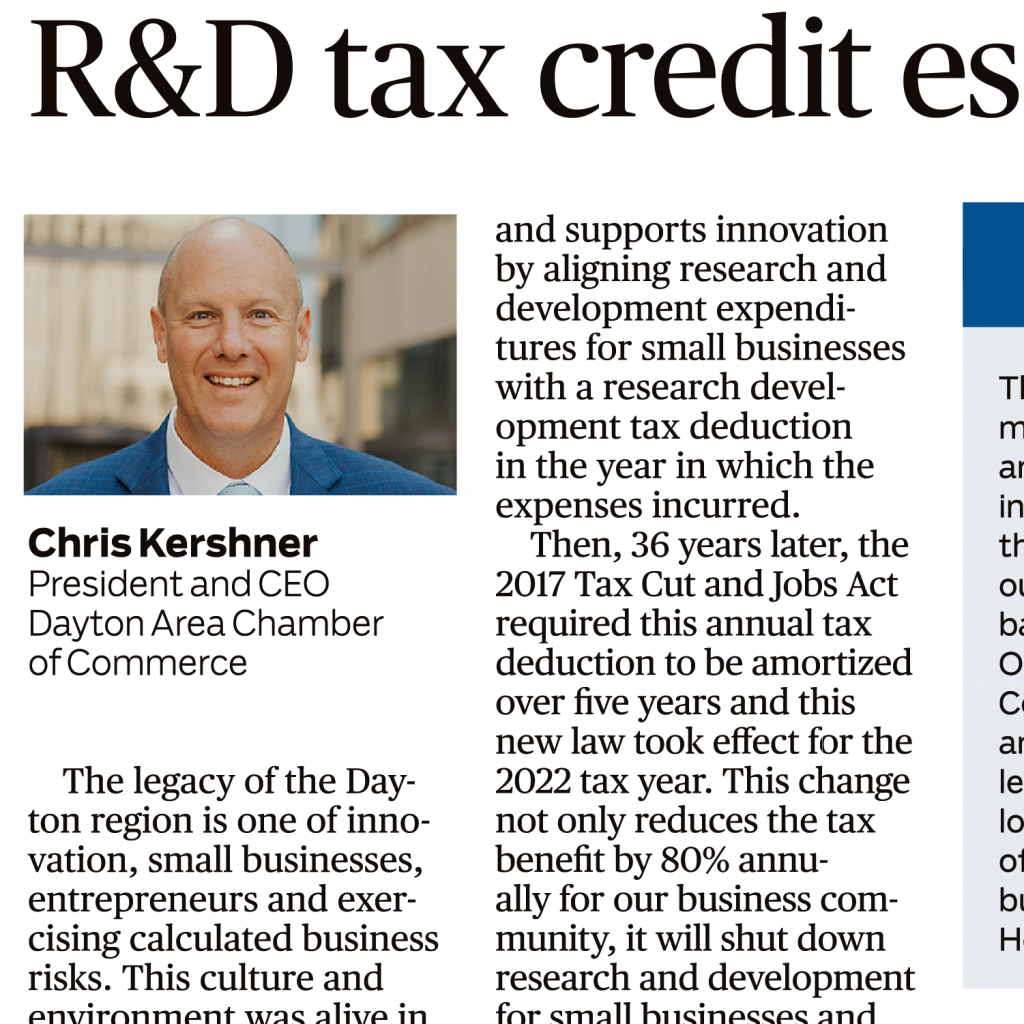OP-ED | Kershner: R&D Tax Credit Essential for Dayton Businesses
VIEW ARTICLE AS FEATURED IN DAYTON DAILY NEWS
The legacy of the Dayton region is one of innovation, small businesses, entrepreneurs and exercising calculated business risks. This culture and environment was alive in the year 1900 and it has evolved and embedded itself in the DNA of our business community in 2023.
Since 1981, the federal government has supported this business culture through a research and development tax credit that incentives and supports innovation by aligning research and development expenditures for small businesses with a research development tax deduction in the year in which the expenses incurred. Then, 36 years later, the 2017 Tax Cut and Jobs Act required this annual tax deduction to be amortized over five years and this new law took effect for the 2022 tax year. This change not only reduces the tax benefit by 80% annually for our business community, it will shut down research and development for small businesses and have a disproportionate impact on the Dayton area, as R&D has been critical to our business community. This tax deduction is more than just a nice incentive for businesses, it has been essential for off-setting the cost related to research and development for small businesses and it is vital for innovation and continued product development. This is especially important for the Dayton region, as we have cultivated an ecosystem for decades that supports innovation commercially and incentivizes innovation that ensures the US Department of Defense and the United States Air Force have dominant global technologies. There are substantial costs for small businesses in developing, evolving and innovating new products. This R&D is worth the risk for these companies if the tax environment helps to offset the cost and there is opportunity for commercial success. Without this full annual tax benefit in place, small business innovation will be stifled, research will decelerate and ultimately production will be impacted. While the United States debates this issue, countries like China have aggressively moved forward in this area, allowing direct R&D expenses to be deducted, and they are also providing an additional deduction of up to 100% of R&D expenses.
What’s the answer? It is important that Congress acts quickly to pass legislation that will immediately repeal the R&D 5 year amortization requirement to support small business growth an innovation. Businesses throughout the Dayton region and the nation are being severely impacted by this change and it is critical that we keep the tools in place in that support our Dayton area business community. We can cannot stifle this innovation as a country while other nations advance.
Chris Kershner, CAE
President & CEO
Dayton Area Chamber of Commerce









